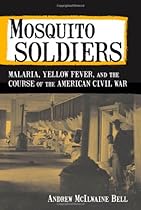

In Confederate Political Economy; Michael Bonner suggests that the Confederate nation was an expedient corporatist state -- a society that required all sectors of the economy to work for the national interest; as defined by a partnership of industrial leaders and a dominant government. As Bonner shows; the characteristics of the Confederate States' political economy included modern organizational methods that mirrored the economic landscape of other late nineteenth-century and early-twentieth-century corporatist governments. Southern leaders; Bonner argues; were slave-owning agricultural capitalists who sought a counterrevolution against northern liberal capitalism. During secession and as the war progressed; they built and reinforced Confederate nationalism through specific centralized government policies. Bolstered by the Confederate constitution; these policies evolved into a political culture that allowed for immense executive powers; facilitated an anti-party ideology; and subordinated individual rights. In addition; the South's lack of industrial capacity forced the Confederacy to pursue a curious manufacturing policy that used both private companies and national ownership to produce munitions. This symbiotic relationship was just one component of the Confederacy's expedient corporatist state: other wartime policies like conscription; the domestic passport system; and management of southern railroads also exhibited unmistakable corporatist characteristics. Bonner's probing research and new comparative analysis expand our understanding of the complex organization and relationships in Confederate political and economic culture during the Civil War.
#673940 in Books Andrew McIlwaine Bell 2010-04-01 2010-04-01Original language:EnglishPDF # 1 8.50 x .90 x 5.40l; .95 #File Name: 0807135615216 pagesMosquito Soldiers Malaria Yellow Fever and the Course of the American Civil War
Review
4 of 4 people found the following review helpful. Mosquito SoldiersBy James PearsonAn excellent book. While it is well known that many more soldiers died from disease than from battle; the author makes a compelling case that mosquito-borne diseases had a more complex effect on military operations than attrition. Commanders on both sides were aware of the high prevalence of malaria; yellow fever; and other diseases now know to be caused by mosquitoes; and avoided campaigning in these areas in the summer months. The book is full of examples of military commanders who chose their campaign objectives based on the fear of disease as much as the military and political considerations emphasized by most civil war histories. An interesting side effect of this fear; coupled with the mistaken belief that Africans were immune to these diseases; was one consideration in the push to form colored regiments. The book is well documented with quotes from primary sources; in many cases; from the commander's own writings.1 of 1 people found the following review helpful. Glad to have read this bookBy Donna "Doc" RussoThis is a good and relatively short read. I chose to read this book for a class paper I am writing. The book is very informative. The compilation of statistics was extremely helpful as was the detail of the diseases; malaria and yellow fever; which ravaged and stopped Union and Confederate armies in their tracks.0 of 0 people found the following review helpful. Civil War and DiseaseBy Ronald R. MillerI don't remember high school history ever talking about this. 2/3 of the solders died from disease rather than combat. And today we don't think about malaria or yellow fever in the US but during the Civil War they were major killers. There were three sides in the Civil War. North; South and Bugs. If you want to read up on this; read this book.